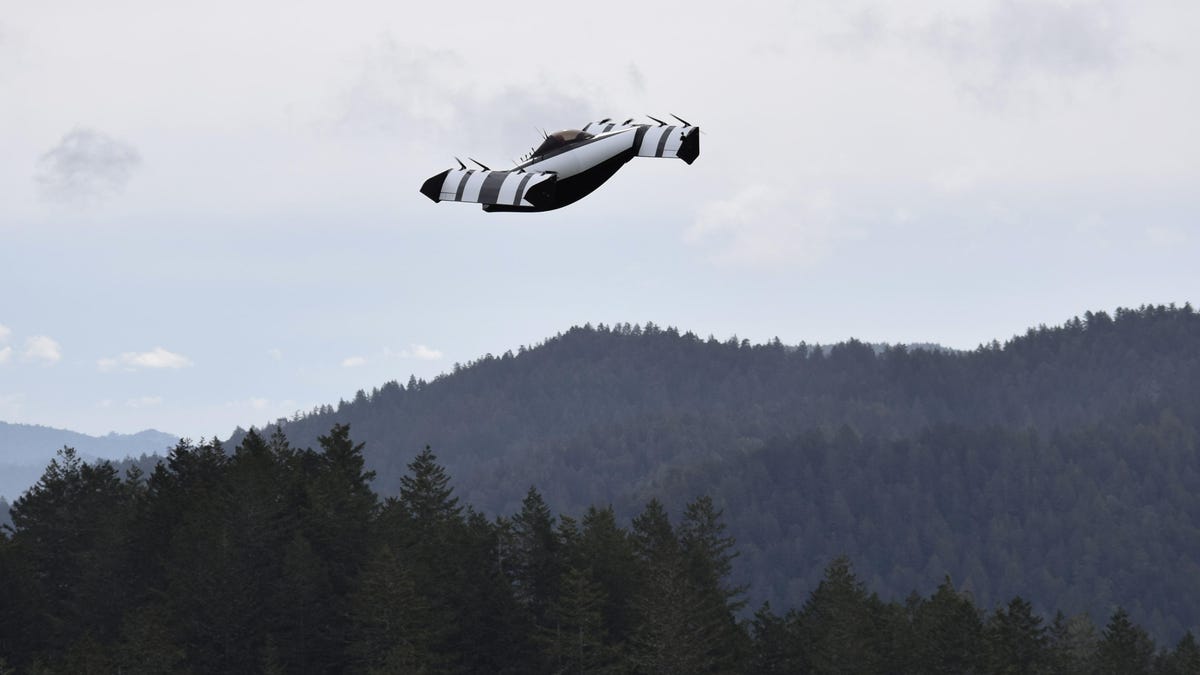Larry Page-backed 'flying car' startup should hit the market next year
Just don't expect them to be legal in areas where they'd be useful, at least to start.

There are a number of companies out there attempting to hawk "flying cars," personal aircraft meant to bring about some kind of transportation revolution. The framework isn't even in place to support such a revolution, but one company with major backing still wants its products on sale before the decade's out.
Opener is a startup that hopes to have its first product on sale next year, CNBC reports, citing an interview with Opener's technical advisor, Alan Eustace. It has the backing of Google co-founder Larry Page . While it's unclear how much investment Page has put into Opener, the company's FAQ page claims it's a "well-funded" startup that "will not be seeing new investors for the foreseeable future."
Opener's first craft, called BlackFly, is pretty standard from a personal-air-transport standpoint. It will be capable of vertical takeoffs and landings, operating entirely on electricity from a battery that can be recharged like an electric car. Opener also claims BlackFly will be capable of autonomous flight, but it's unclear if that capability will be offered at launch. Like other aircraft, BlackFly is loaded with redundancies, including a low-power glide mode and an optional parachute system, just in case.
CNBC points out that the second BlackFly goes on sale, its operations will be heavily curtailed under current aviation regulations. The FAA classifies the BlackFly as an ultralight, which means users won't need a pilot's license to operate it, but Opener's FAQ says it requires owners to complete the FAA's private-pilot written examination, in addition to Opener's own "familiarization and operator training."
Don't count on the BlackFly to revolutionize travel through congested cities right away, either. As an ultralight, it will only be permitted to fly over uncongested terrain. And with a max range of 25 miles at a max speed of 62 miles per hour in the US, it won't be much, if any faster than a car across the same areas. It can travel for longer and at faster speeds in Canada, due to discrepancies between each country's aviation regulations.
The vehicle doesn't operate like a traditional car once it's on the road, making the whole "flying car" designation even less tenable. According to Opener's site, once BlackFly is on the ground, two small carts are required to move the craft around. It will accommodate just a single passenger up to 6.5 feet tall and 250 pounds.
Eventually, Opener hopes that it can make personal VTOL craft that will be as affordable as a passenger car. But that price, as well as the lofty idea of revolutionizing transportation, is still a ways away. CNBC pointed to a Deloitte study that estimates it will take at least five years for local and federal regulations to adapt to large-scale personalized air transport.
Larry Page isn't putting all his VTOL eggs in the same basket. He also has a financial stake in Kitty Hawk, a separate personal-VTOL company that hopes to have its first commercially viable product in the next three or so years. Unlike BlackFly, Kitty Hawk's Cora seats two, and it looks a bit more "traditional," per se. It's heading to New Zealand for testing, thanks to its favorable regulatory environment.
Kitty Hawk: Take a deeper look at Larry Page's other major VTOL investment.
Terrafugia: Of all the things to be called a "flying car," Terrafugia's product is the closest to actually being one.

